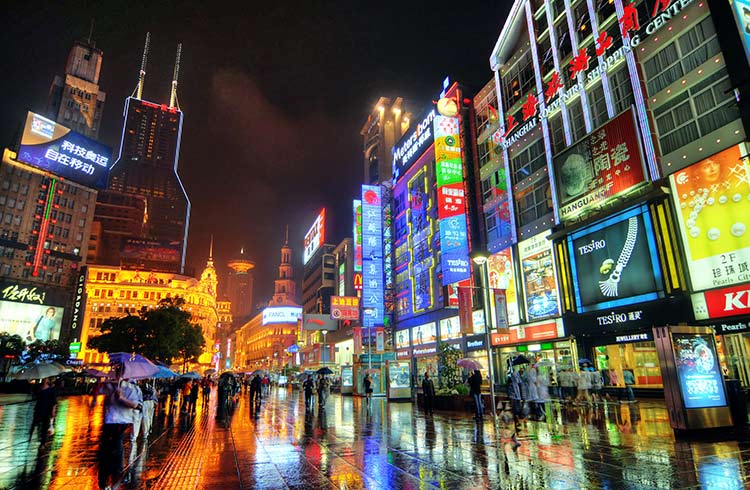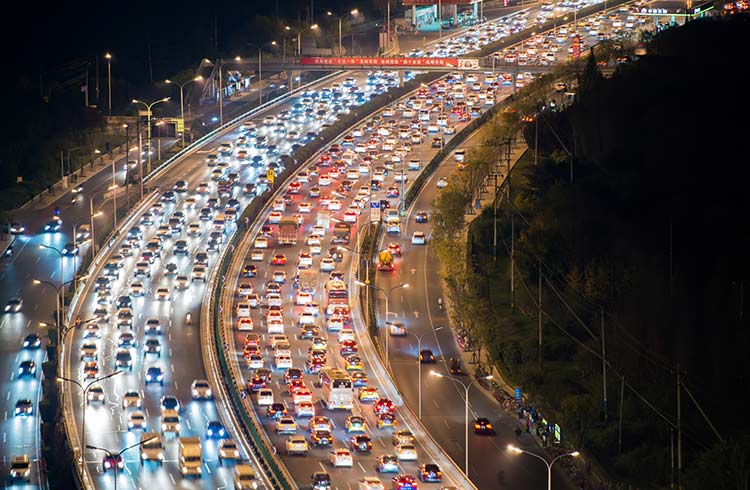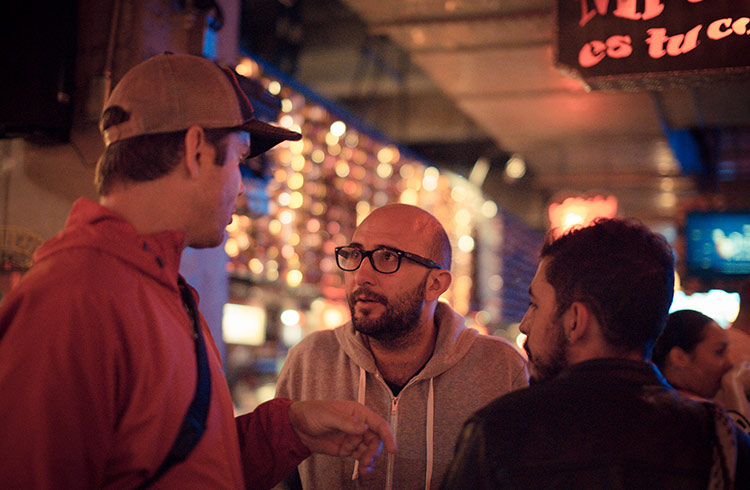Travel Scams in China: How to Avoid Being Conned
Don't get conned in China. Here's how to stay alert and avoid getting scammed.
 Photo © Getty Images/Cuellar
Photo © Getty Images/Cuellar
Avoid scammers in Shanghai, Beijing and throughout China with these tips. Here are some of the most common scams in China.
1. The Practice English Scam
One of the most common scams involves a traveler being invited to dinner by a stranger to dinner so they can "practice their English". However, the only practice you are likely to get will be mathematical, as you could be left to calculate the expensive dinner bill left behind when the con artist leaves you with the receipt.
A similar scam involves couples who invite you to a tea tasting ceremony, but they leave you the check when it comes.
Be wary of who you eat or drink with. If you sense a scam, politely decline the offer.
Simple and flexible travel insurance
You can buy at home or while traveling, and claim online from anywhere in the world. With 150+ adventure activities covered and 24/7 emergency assistance.
Get a quote2. The Free Exhibition
Not so much a scam as a hustle, beware art students who approach you and invite you to a "free" art exhibit at their school. When you accept, they try to get you to buy something after they have explained their hard work, and made you a calligraphy picture. This is most common around Tiananmen Square in Beijing.
3. Counterfeit Chinese Money
Counterfeit notes, especially ¥50 and ¥100 bills, were once widespread throughout China, including Hong Kong and Macau.
Fake notes are in circulation despite the Chinese Government making attempts to stamp out the issue, and newly minted notes have decreased the probability of this scam. Part of the problem is that many of the fake notes are of such a high quality, it's hard to detect them, which is why many shopkeepers still use cash detectors and hold notes up to a light. Some merchants will exchange a large bill with a fake and claim you were the one who handed over the counterfeit.
Try to carry smaller denominations or only pay with exact change to avoid getting fake money in return. If you only have ¥50 or ¥100 bills, record their serial numbers so you know if they have been switched with a counterfeit.
Beware that ATMs have also been known to issue counterfeit notes.
4. Fake Goods in China
Throughout China, there are many fake, or at least grossly overpriced, souvenirs.
Nanjing Road in Shanghai and Beijing's Silk Alley are hotspots for locals selling poor-quality products or services to travelers for jacked-up prices.
Watch transactions carefully and inspect all items that you buy, to avoid ending up with something other than what you paid for in your shopping bags.
Be careful when booking shopping tours in Beijing. Most often, the prices for travelers are inflated and the tour guides will push you to buy, as many guides get a commission off the sale.
Your best bet is to stick to larger shopping malls and traditional retail outlets for higher-priced items, and avoid buying fake goods on the streets.
5. Employment scams
If you are going to China for work, carefully research the company which offers you a job before you accept the work. While most are reputable, there are some dodgy operators who try to take advantage of travelers and expats with employment scams. Most of these involve teaching English.
Australian travelers have reported misrepresented living and employment conditions, and contract disputes leading to eviction from university housing or threats of physical violence.
Australia's Department of Foreign Affairs and Trade advises meticulously researching the work opportunity and necessary visa requirements.
Working visas are usually Z-class and require a residency permit. Penalties for the wrong visa or for overstaying your visa are harsh and could result in jail time.
Legitimate employers will never ask to keep your passport or specify that you forfeit a return plane ticket or pay if the contract gets terminated prematurely.
If intending to work in China, contact the embassy in your home country to check on visa and other requirements.
Several forums on teaching English have ongoing discussions about fraudulent work offers. Some say scammers tried to get individuals to enter China on L-visas, which are tourist visas, and accept unlicensed teaching positions.
Potential teachers should talk to the person hiring and other employees, in addition to visiting the school and watching classes.
Government schools seem to be the most credible, and problems that arise with working conditions can be sorted by the Foreign Experts' Office of the provincial education ministry.
Some red flags that could indicate something dodgy about an English teacher position include an ad with inflated language explaining all the perks of the job, vague descriptions of job duties and inconsistent information.
One teacher pointed out that many of the work scams center on private language schools that are fooling clients as well as teaching applicants. He suggested asking about the curriculum to prove the school is legitimate.



4 Comments
If you recieve fake money from an ATM in China, don´t bother going to bank that own´s the ATM it isn´t worth it. I withdrew 2000rmb last Friday night from the ATM at my hotel"Bank of China", 1000rmb of the 2000rmb is/was fake. I have today spent nearly all day with the bank (which is just across the road from my hotel) explaining to them that the money was withdrawn from there ATM. Apparently they do not own the ATM, a seperate company actually fills the ATM machine, the only time they open the machine is when somebody´s card get´s taken.
Anyway they took the seriel numbers of the notes that I had and done a check - they deny that the money I recieved came from the ATM in question, because they say they can detect all numbers in the machine...BS if you ask me. Be warned.
Beware of taxi scams. Our Beijing experience - we got in and driver demanded US dollars but we told him we only had Yuan. He then wanted about double the value of the going exchange rate. We said we only had "X" amount and he accepted it. Turns out we still paid too much for what turned out to be a short ride, but it could have been far worse. If you have a trusted local guide you can avoid taxi rip offs (our guide really browbeat one driver). If not, remember that the driver knows English and the area better than you know Chinese and the route, and he's probably better at quick currency conversion, too.
Taking the Metro is the way to go,no ripoffs possible there.
I was staying at a little place but would pick up a taxi at the big hotel
across the street,the doorman would get one for us.Then I would return there too,
the taxistas don't wanna lose big time business,we had no problems except for communication.
Thanks for sharing Phil, these scams you shared are indeed and still ongoing today!
Watch out also for the massage scam in Shanghai, the fake shows put up at tourist oriented Traditional Chinese Medicine clinics, as well as the scam rickshaw drivers at the north side of the Forbidden City compound in Beijing. Hope this helps!